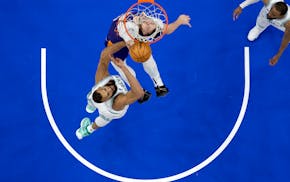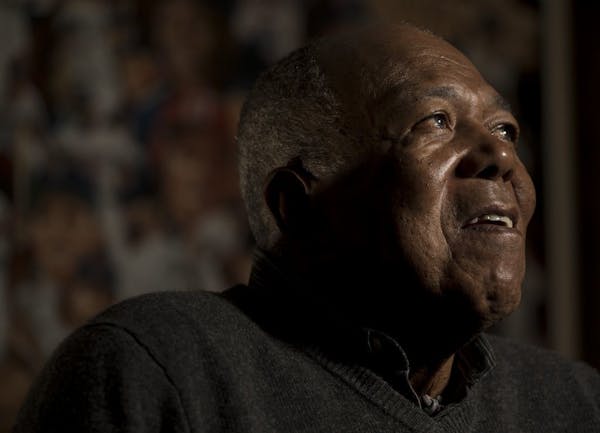It's not gone yet, but Tony Oliva believes he might soon see it disappear for good. Normalized relations between the United States and Cuba, the announced goal of President Obama and Cuban leader Raul Castro, might finally remove that awful barrier for Cuban baseball players like himself.
No, not the trade embargo, at least not directly. What Oliva wants to fade away is: The Choice.
"It's an awful thing, to defect," Oliva said Wednesday. "A ballplayer shouldn't have to give up his country in order to follow his dream."
That's the choice that American League Rookie of the Year Jose Abreu had to make last winter; that two-time Home Run Derby champion Yoenis Cespedes wrestled with three years ago; that Dodgers outfielder Yasiel Puig says still bothers him.
Maybe someday soon, Cubans no longer will have to choose, a prospect that elated the former Twins star Wednesday. "It's a great day for both countries," said Oliva, 76. "People have been waiting for this for 50 years, so it's going to make so many people happy. Not just [in] baseball, but everywhere."
Oliva didn't defect, but the distinction didn't mean much when relations between the U.S. and his homeland were cut off shortly after he arrived in the U.S., when Fidel Castro seized control of the Cuban government. For two decades, Oliva couldn't see his parents, he couldn't regularly contact his siblings, he couldn't return to the ball fields of his youth.
That's the isolation many current ballplayers/defectors face, and Oliva said it saddens him. "After the season, you want to go home. I see players from the Dominican [Republic], Puerto Rico, they go back to their families," he said. "For Cubans [who defected], it's very hard. They have no place to go."
Oliva, who now is allowed to visit Cuba once or twice a year, is delighted that that obstacle may disappear for current and future players. "Really, it's a happy day for everybody," he said. "Teams can sign the players, and players can be free to live in Cuba and play" in the major leagues.
Perhaps, but there are still many steps to be taken before the Twins can send scouts to Oliva's homeland, not the least of which is Congress lifting the embargo that has been in place since shortly after Oliva arrived in the United States in 1961.
Major League Baseball cautioned after Obama's announcement that "there are not sufficient details to make a realistic evaluation" of what it might mean for the sport. "We will continue to track this significant issue," MLB said in a statement.
The current manner is, players must escape from Cuba, sometimes by being smuggled in frightening and dangerous manners, then establish residency in another country and apply for the right to sign with an MLB team. It's not a particularly orderly process, but more than 100 Cuban ballplayers over the past three decades have played in the major leagues, 25 of them last season.
Five appeared in July's All-Star Game at Target Field, 29 have made All-Star teams through the years (including eight times by Oliva himself), and over the past decade, contracts for the best players have skyrocketed. Abreu signed for $68 million over six seasons from the White Sox last winter, while the Red Sox paid $72.2 million in August for outfielder Rusney Castillo.
"I'm guessing it's a fertile territory" for ballplayers, Twins General Manager Terry Ryan said. "We've seen some great talent come out of there."
The Twins would jump at the chance to find even more, Ryan said, "just like the other 29 clubs would do. … I don't think anybody knows how many players there are, because we can't go to Cuba to scout. We don't know what their pool of 14- and 15- and 16-year-olds looks like coming up, the way we do in the Dominican."
Still, the Twins regularly scout Cuba's teams in international competitions, particularly their World Baseball Classic team, in order to be prepared in case a prominent senior-team member defects. At least a half-dozen scouts file reports on each player, Ryan said. "Maybe the most difficult part of that ordeal is to learn about a player's makeup," he said. "Agents will put on enough showcases for you to see their skills — how fast he is, arm strength, that sort of thing. But you don't get the complete package until you've assessed his work ethic, his personality, his makeup."
Maybe that will change, Ryan said. "But the rules are still intact for now," he said, "so there's no sense in getting too excited yet about sending scouts down there."
NFL draft has been on tour for a decade and the next stop is Detroit, giving it a shot in spotlight

Souhan: Wolves fans made Game 1 special. Now bring on Game 2.

Will Wolves show best-in-the-NBA defensive form in Game 2?

Former Totino-Grace star set to follow father as first-round pick

